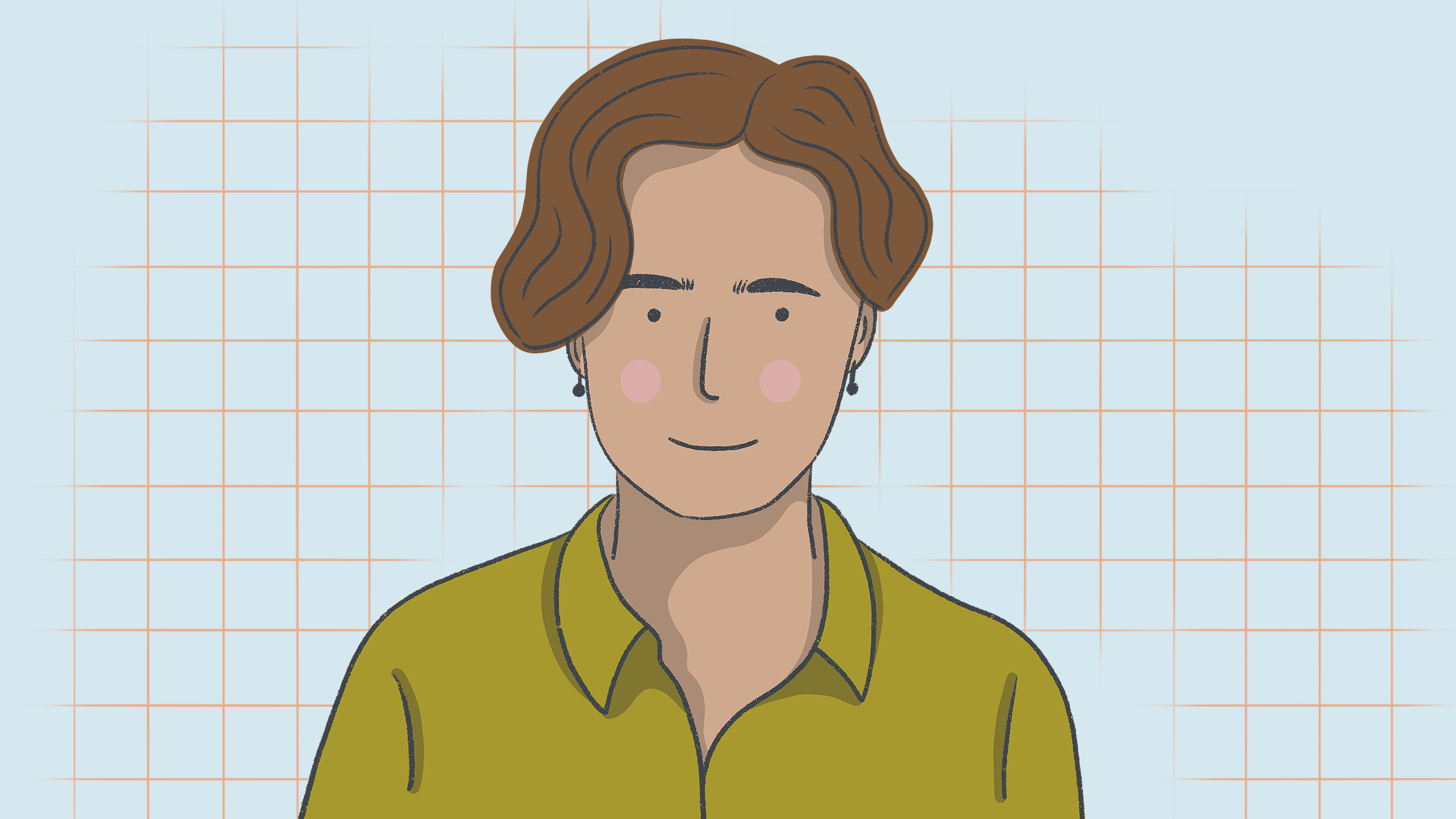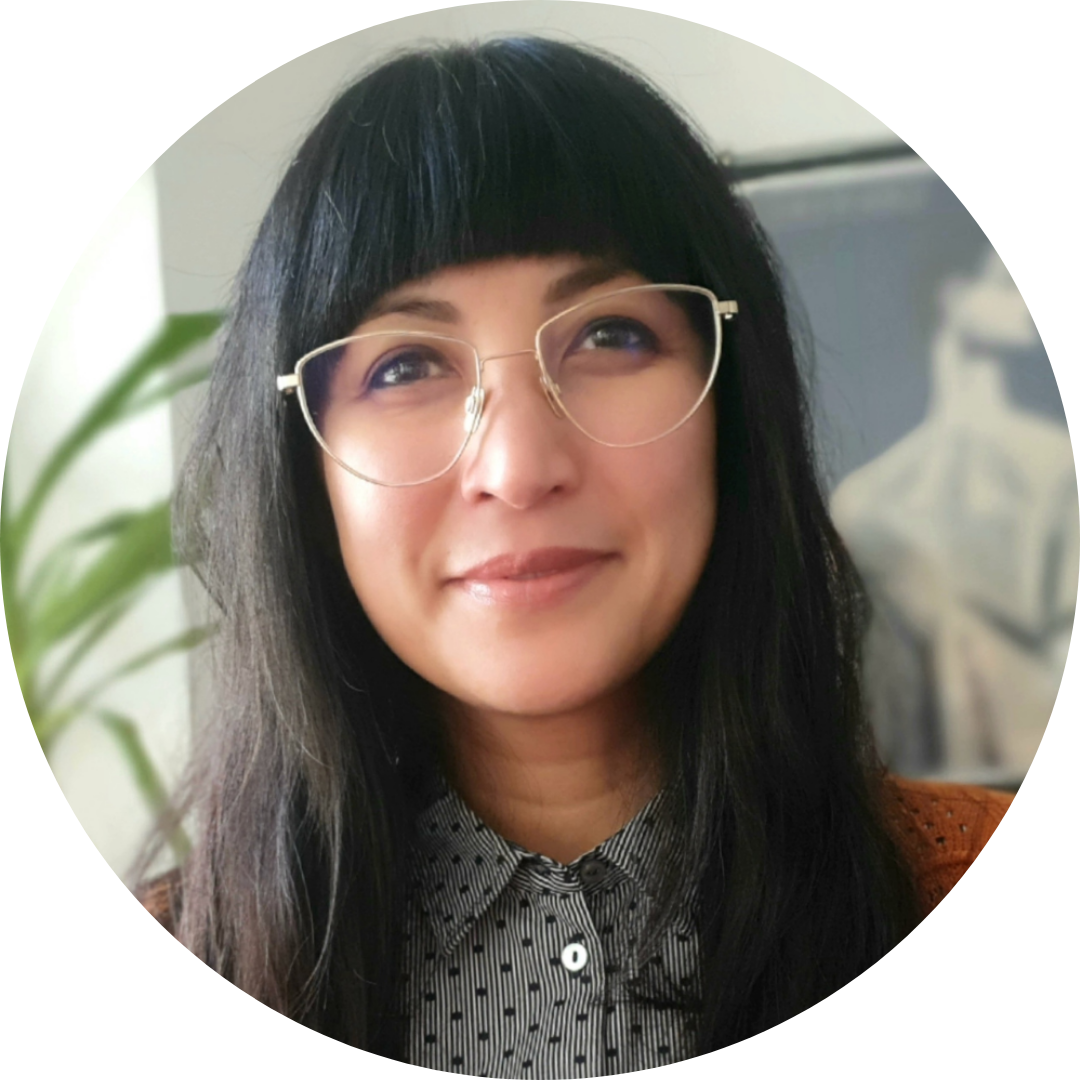
Illustration by Daniela Nunes
No youth participation on a dead planet: an interview with youth climate activist Anuna De Wever
by Cristina Bacalso
The contemporary climate movement is also a youth movement. Not only do young people see themselves as the most impacted by climate change, they are also leading the climate movement, shaping it and, in many ways, making it their own: using participatory forms that span the range from formal to informal, including civil disobedience. Youth are also linking climate with the many interlinked “polycrises” that they find themselves faced with today – economic inequality, racial injustice, colonialism and war.
Anuna De Wever Van Der Heyden is one such figure. She is a 23-year-old activist, a key leader in the Fridays for Futures movement in Belgium, and the co-founder of Youth for Climate Action. She has been invited to speak at several high-level events, including the Beyond Growth conference at the European Parliament, and most recently, the Symposium: Young people, democracy and climate action hosted by the EU-Council of Europe Youth Partnership. But she’s taking her fight from the conference podium to the streets, because as she says: “change needs to be pushed from the outside”.
Coyote Magazine spoke with her before her keynote presentation at the climate action symposium. This interview has been edited for length and clarity.
 Anuna, how was the environment talked about when you were growing up?
Anuna, how was the environment talked about when you were growing up?
It was actually my twin sister, Luca, who was very scared about the climate crisis. She’d come home after school, talking about melting ice, polar bears dying, and the rising sea levels. And I would always be the one who would say, no, it’s fine. Don’t worry, adults are taking care of this. You don’t have to worry about it. There was still so much confidence in the political system back then, right? And now I’ll literally meet people who are like 10, 11, 12 years old and they’ll say: I don’t have a future. I don’t have a life. There’s so much eco-anxiety.
 Do you remember the moment that you got politicised?
Do you remember the moment that you got politicised?
Yeah, definitely. I think it was COP [the United Nations Climate Change Conference]. In 2018, Belgium was at COP, and there was this high ambition coalition set up by countries who wanted to go beyond what the conference was proposing. In hindsight, I’m not impressed with that at all. But at that point, countries were uniting together in this high ambition coalition, and Belgium decided not to join. I was like, how is that even possible? Our governments pretend they care about the climate, but clearly they don’t. Because when they actually get the opportunity to take tangible action, they refuse to do it. I was discussing it with my mum that night, and asked her, why do they just keep getting away with this? I don’t think that’s how democracy works. Young people would have voted differently. She said, I saw this girl in Sweden, Greta Thunberg. She went in front of parliament to call out the lack of climate ambition from the Swedish Government. Why don’t you do the same? I thought about it for a few days and then decided, let me do that. So I made a video to ask other people to join me and start mobilising. That’s when I became a part of the climate movement.
 Do you think that youth activists face particular challenges in their fight against the climate crisis?
Do you think that youth activists face particular challenges in their fight against the climate crisis?
When you get into it in the beginning, you’re very intimidated, but everything seems really cool. It seems like the media is on your side. It seems like politicians want to do this thing with you. Now, we’re being co-opted by the same actors that we are actually fighting against. They are using the words that we were saying: “more ambitious climate policy”, “sustainability”, “green future”, “green transition”. They’re saying all these words that we used to say, but they mean completely different things. So our entire narrative has been greenwashed. I think one of the things that youth climate activists need is more coalitions with older generations, especially radical movements – movements that are outside of the system, that push fundamental change. I mean, the older you get, the more you can deal with that. [The narrative] is very often not respectful, especially when it’s about young people.
 What do you think about the more radical ends of the movement, in terms of pushing forward the overall aims? I’m thinking about the Extinction Rebellion’s tactics, civil disobedience, in Germany, pasting hands to the street, or the tomato soup actions. But also blockades of oil shipments, and sit-ins for land defence.
What do you think about the more radical ends of the movement, in terms of pushing forward the overall aims? I’m thinking about the Extinction Rebellion’s tactics, civil disobedience, in Germany, pasting hands to the street, or the tomato soup actions. But also blockades of oil shipments, and sit-ins for land defence.
I think it’s all very necessary. I used to be more into the institutions. I worked for the Greens EFA Group in the European Parliament and then Climate Action Network Europe on trade and investment policy. But your resistance kind of becomes a legitimising thing in the system. It feels like there’s this diversity of opinions and it must be a very democratic space, where everybody can have their voice heard. And that doesn’t happen, obviously. This is because there is a massive power imbalance in the world, as to who gets to make the decisions and who doesn’t. So I don’t think it’s realistic to think that real change is going to come from within. These institutions and the economic system are built to maintain the status quo. I really did try [to change things from the inside]. But I think what makes policy is not [the politicians], but capital investors, and wealthy people. The 1%. And they’re not in parliament, nobody elected them. [They have power] because of capitalism and wealth accumulation. Therefore, civil disobedience is very powerful in a way, because it really pushes the issue into the media. And the only way to attack is from the outside.
Image: Anuna De Wever Van Der Heyden speaking during her intervention at the Symposium 2024: Young People, Democracy, and Climate Action
 So do you think that formal spaces, like at the upcoming COP29, still provides a place for youth voices, or do you think that the time for that has passed?
So do you think that formal spaces, like at the upcoming COP29, still provides a place for youth voices, or do you think that the time for that has passed?
I mean, there’s never been a space for youth voices there. There’s been a platform, because you need to pretend like you’re including young people. But I get really increasingly frustrated when I see climate activists, especially those who are white and European, on a big global stage, saying, “We need to do more, we need a just transition and have climate ambition”. But as an activist, you probably don’t even believe it yourself, right? You know this isn’t going to do anything. And then at the end of your speech everybody’s going to clap and you’re going to be congratulated and it’s all great, but it’s not going to do anything. There was a new Guardian report that showed that out of 1 500 climate policies, only about 60 have actually made a tangible difference. So, policies don’t even make a difference. This is because fossil fuels are the most profitable industry in the world, and this is still going to be the case for many, many years. It’s not about morality. It’s not about our future. It’s not about what is best for the world. It’s just about people’s bank accounts, literally.
 Many activists, like Greta Thunberg, who you mentioned before, are tying the climate crisis to other crises, including Gaza. What are the opportunities and challenges of linking multiple crises to climate?
Many activists, like Greta Thunberg, who you mentioned before, are tying the climate crisis to other crises, including Gaza. What are the opportunities and challenges of linking multiple crises to climate?
The system, it conquers and divides. That’s how it works. So, what we have to do as movements is to unite and see each other’s struggles as our own. With the climate movement and Palestine, for example, I’m being perceived as very radical for connecting them. With refugees and migrants, too – we let them drown in the Mediterranean and we build walls, and militarise our entire continent. The system [that underlies all these problems] is, for me, Western imperialism backed by militarisation. And the only way to get rid of this system is to build a global movement. But we can never do that if we have single issue movements that are all doing their own thing. We can only [join together] by building bridges and that means, especially for European movements, redistributing power. But that is apparently very difficult, which is why it’s not happening.
 So, my last question. What are your hopes and dreams for the coming months or years?
So, my last question. What are your hopes and dreams for the coming months or years?
The first one is a free Palestine. Obviously, that’s the main one. Forever, actually. But I think the biggest thing that I keep thinking about, that I keep dreaming of, is to see more youth activists building those connections. Because I can see a generation of activists making the same mistakes as the movements that came before us. And I don’t think we have the time to become 50-, 60-,70-year-olds and then be enlightened about the fact that, after all that, we were all fighting the same fight. I think that’s something we should realise right now. We should work with others. We should learn. We should feel uncomfortable. We should push through. I think that’s the only way. If that happens at some point, then I’m at least going to be part of a revolution that I believe in.

Cristina is an independent research consultant specializing in youth development and human rights. She has collaborated with global organizations such as UNICEF and the Council of Europe and is a member of the Pool of European Youth Researchers Advisory Group


